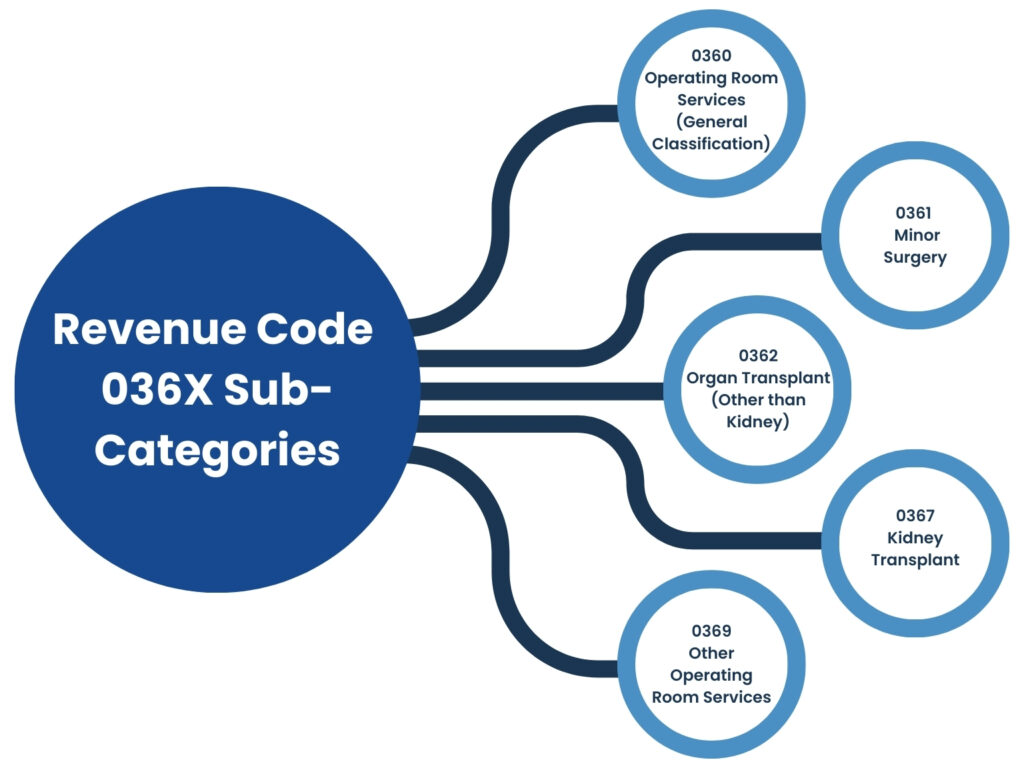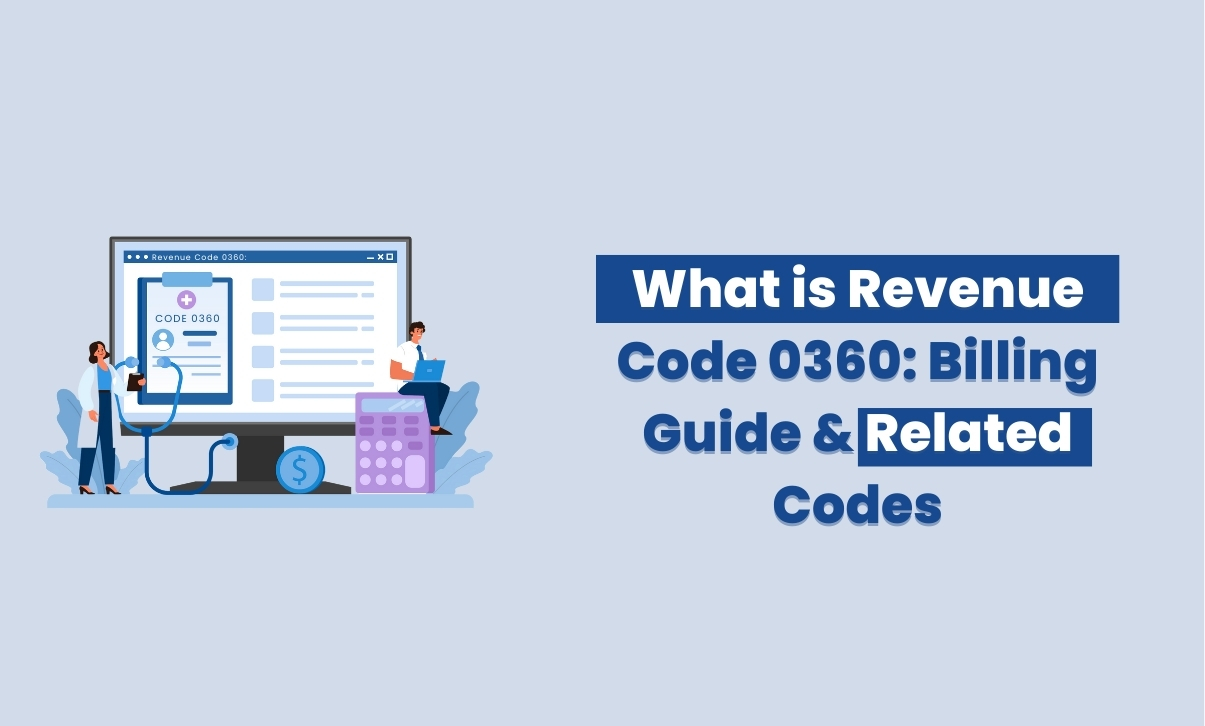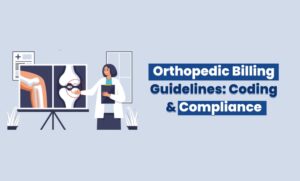When it comes to hospital and surgical billing, every detail matters. One of the most important details is using the right revenue code. Revenue Code 0360 is a key code for operating room services, and it plays a big role in how hospitals and surgical centers get reimbursed for procedures. If you are a medical biller, coder, or healthcare provider, understanding this code can save time, prevent denials, and keep your claims compliant.
In this article, we will walk through what Revenue Code 0360 means, how it differs from related codes, the billing guidelines you should follow, and the provider settings where it is most often used.
What is Revenue Code 0360?
Revenue Code 0360 is the general classification code for operating room services. Hospitals and surgical centers use it on the UB-04 (CMS-1450) claim form when billing payers for procedures that require the use of an operating room.
It represents the facility charge for the use of the operating room, including the space, equipment, nursing staff, and supplies needed for the surgery. However, it does not cover the professional fee for the surgeon or anesthesiologist; those are billed separately using CPT and HCPCS codes.
In simple terms, Revenue Code 0360 tells the payer:
- A surgery was performed in the hospital’s operating room.
- The facility is billing for the room and associated services.
Many providers confuse Revenue Code 0360 with more specific operating room codes, but this one is primarily a catch-all classification when no other more precise code applies.
Revenue Code 036X Sub-Categories
The 036X series of revenue codes is dedicated to operating room services. While Revenue Code 0360 is the general classification, the other subcodes provide greater clarity and specificity for different surgical situations. Correctly identifying which subcode to use is critical for both compliance and reimbursement accuracy.
Here’s a detailed look at each:

0360 – Operating Room Services (General Classification)
Purpose: Used when no more specific subcategory applies. It is the “default” code for operating room charges.
Example: A complex surgery that doesn’t fall under the minor surgery or transplant categories.
Billing Tip: Pair with the appropriate CPT/HCPCS code to justify the use of a full operating room.
0361 – Minor Surgery
Purpose: For minor or less invasive surgical procedures that still take place in the operating room but don’t require extensive resources.
Examples:
- Outpatient excision of a small cyst.
- Removal of minor skin lesions under local anesthesia.
Billing Tip: Some payers may question why minor procedures were done in an operating room instead of a procedure room. Documentation should clearly justify the use of OR facilities.
0362 – Organ Transplant (Other than Kidney)
Purpose: Reserved for major organ transplants other than the kidney. This includes heart, liver, lung, pancreas, or multi-organ transplants.
Examples:
- Liver transplant surgery.
- Combined heart-lung transplant.
Billing Tip: Transplants are extremely resource-heavy. Documentation must include operative reports and transplant-specific coding.
0367 – Kidney Transplant
Purpose: Specifically designated for kidney transplant operating room services.
Example: Kidney transplant procedure where the OR is utilized for full surgical support.
Billing Tip: Always code separately from organ transplant services billed under 0362 to avoid confusion. Medicare and many private payers look for the distinction between kidney transplants and other transplants.
0369 – Other Operating Room Services
Purpose: A “catch-all” category for operating room services that don’t fit neatly into 0360, 0361, 0362, or 0367.
Examples:
- Specialty procedures that don’t fall into defined categories.
- Unique or rarely performed surgeries.
Billing Tip: Use sparingly and only when no other subcode fits. Overuse of 0369 can raise payer concerns or trigger audits.
Billing Guidelines for Revenue Code 0360
Correct billing is essential to avoid denials and compliance issues. Below are the most important guidelines to follow when billing under Revenue Code 0360:
1. Documentation Requirements
Hospitals must provide complete operative reports, physician orders, and supporting documentation to justify the use of the operating room. Missing or vague documentation often leads to payer denials.
2. Linkage with CPT/HCPCS Codes
Revenue Code 0360 should be paired with the appropriate CPT or HCPCS procedure codes. This tells the payer exactly what surgery was performed and why the operating room was used.
Example:
- Revenue Code 0360 → Operating Room Services
- CPT Code 47562 → Laparoscopic Cholecystectomy (gallbladder removal)
3. Medicare and Medicaid Rules
Medicare requires that operating room charges be reasonable and necessary. They may bundle some services under Ambulatory Payment Classifications (APCs) for outpatient claims.
Medicaid policies vary by state but generally follow Medicare’s principles. Providers should always check state-specific rules.
4. Avoiding Common Errors
- Do not use Revenue Code 0360 for procedures performed outside of the operating room (e.g., bedside minor procedures).
- Do not bill 0360 without pairing it with the correct CPT/HCPCS code.
- Avoid miscoding between 0360 and 0361 (minor surgery).
5. Compliance Considerations
Hospitals and ASCs should regularly audit operating room claims. Incorrect revenue code usage can trigger compliance reviews and repayment demands from payers.
Payer-Specific Considerations
Medicare Guidelines:
Medicare closely reviews claims with Revenue Code 0360. Hospitals must ensure that:
- The operating room service is medically necessary.
- The claim includes a matching CPT/HCPCS code.
- The procedure is covered under Medicare’s inpatient or outpatient payment system.
In outpatient settings, Medicare may bundle operating room services under Ambulatory Payment Classifications (APCs), which means reimbursement is based on the procedure type rather than the operating room charge itself.
Medicaid Policies:
Medicaid follows a similar approach, but coverage rules vary by state. Some states limit what qualifies as an operating room service, while others set reimbursement caps. It’s important for billing teams to review state-specific Medicaid manuals before submitting claims.
Private Insurance Variations:
Commercial payers often have their own rules for bundling or unbundling operating room charges. Some require prior authorization for surgical procedures, while others may deny 0360 charges if they believe the surgery could have been performed in a less intensive setting. Always check payer contracts and policies before coding.
Healthcare Providers & Facilities Using Revenue Code 0360
Revenue Code 0360 is primarily used by facilities that maintain full operating room services. These include:
- Hospitals (Inpatient & Outpatient): The most common users of 0360, as surgeries requiring a sterile environment and anesthesia are billed here.
- Ambulatory Surgical Centers (ASCs): Some ASCs use this code depending on the payer and the complexity of the procedure.
- Specialty Clinics: Facilities specializing in transplants, orthopedic surgeries, or cardiovascular procedures may also use 0360 or related subcodes.
For providers, proper coding ensures that their facility gets paid fairly for the significant resources needed to maintain operating rooms, from staffing to sterilization and surgical equipment.
Best Practices for Compliance & Accurate Billing
- Always pair 0360 with procedure codes to justify the charge.
- Audit operating room claims regularly to catch errors early.
- Educate billing staff on the differences between 036X subcodes.
- Maintain thorough documentation, including operative notes and physician orders.
- Stay updated with CMS and payer-specific guidelines to avoid compliance risks.
These steps not only reduce denials but also help providers receive the correct reimbursement for costly surgical services.
Summary
Revenue Code 0360 is more than just a billing number; it’s the gateway to ensuring hospitals and surgical centers are properly reimbursed for the intensive resources that go into operating room services. By understanding how this code works, when to use subcategories like 0361 or 0367, and what payers expect, healthcare providers can protect revenue and stay compliant.
For billers and coders, accuracy with 0360 is not optional; it’s essential for financial health, compliance, and smooth claim processing.





